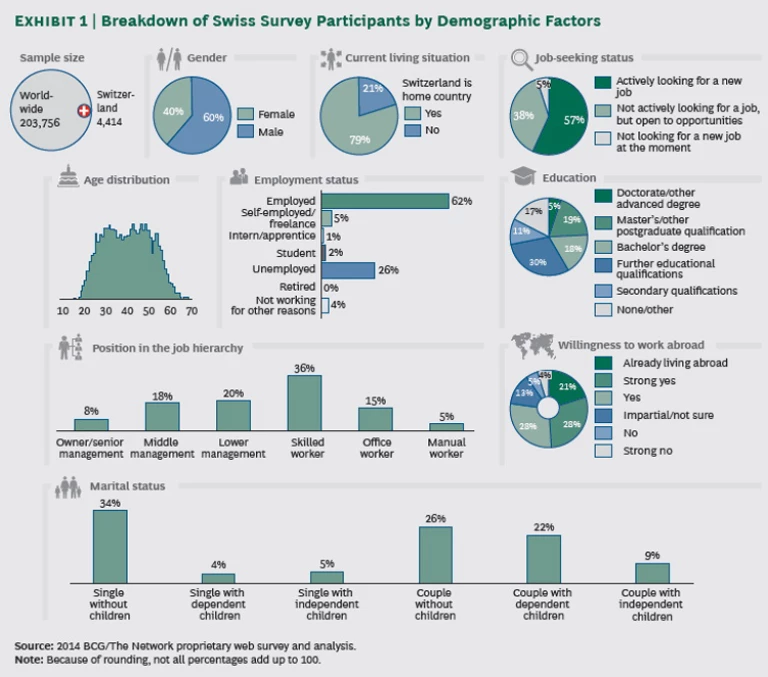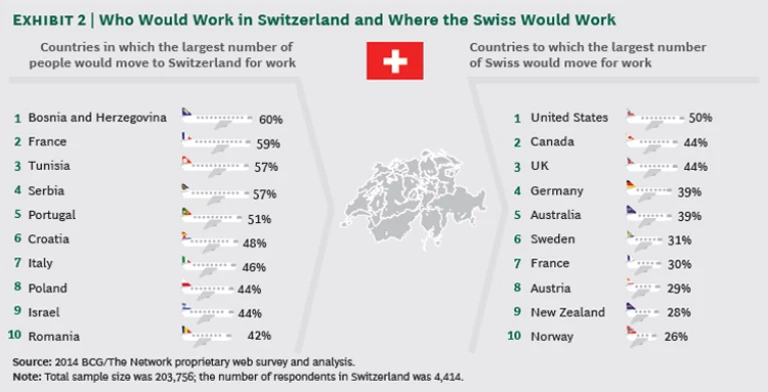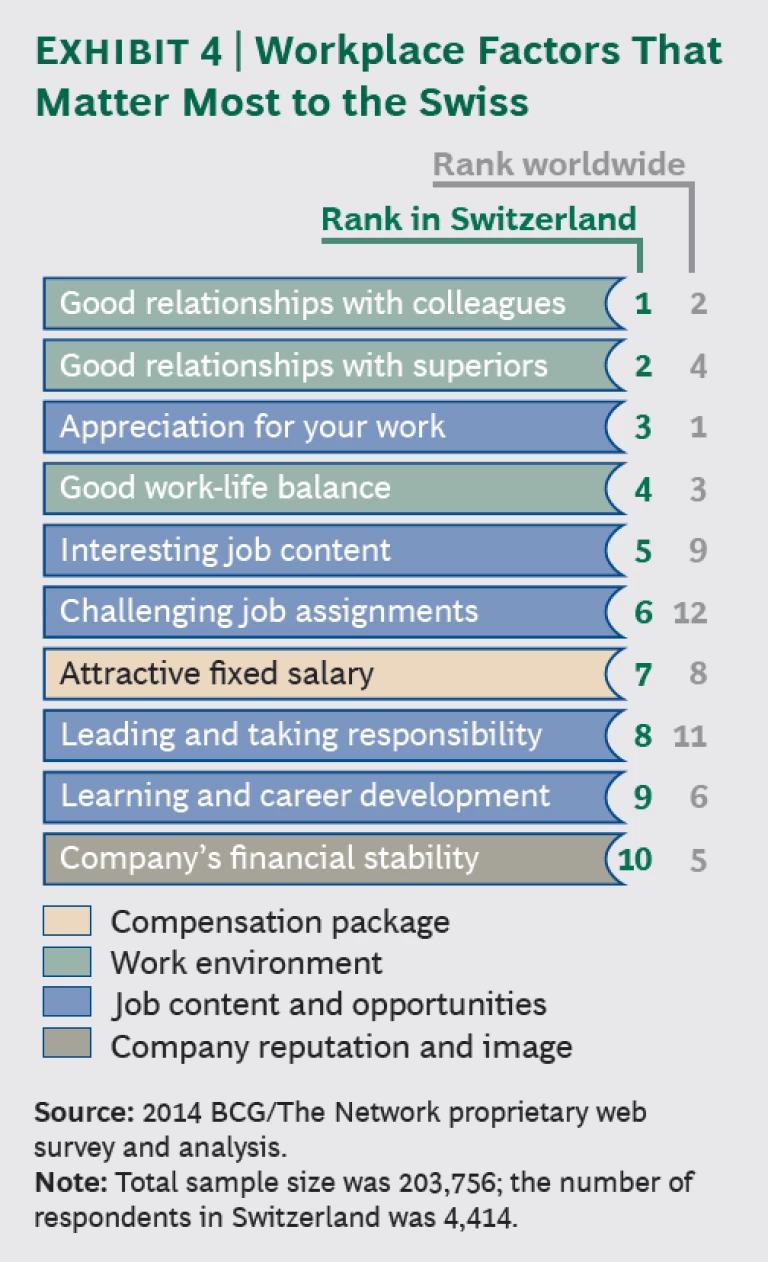Most Swiss people would be willing to take a job in another country. But it’s not because they expect to find a better career opportunity or standard of living elsewhere. That would be a lot to hope for, given how well the Swiss economy is doing.
Instead, the Swiss who say they would be willing to work in another country cite the ability to broaden their personal experience or live in a different culture as their biggest motivations. In this, they are a lot like Germans, for whom experiential factors trump economic factors when it comes to the willingness to work abroad.
Global Talent
Altogether, more than three-quarters of Swiss would be willing to move to another country for work, according to a survey of current and recent Swiss job seekers by BCG and JobCloud, an employment website that is part of The Network. That is substantially above the world average of 64 percent and puts the Swiss at the high end of potential international job mobility among Western Europeans. (See Exhibit 1.)
Switzerland’s status as a multilingual nation partly explains its workers’ positive attitude toward mobility. German is the most widely spoken language, followed by French, so it’s not surprising that both Germany and France are popular destinations among the Swiss. But German and French are not the only languages heard in offices around the country; there’s plenty of English, too. Indeed, the top three preferred work destinations—starting with the U.S.—are all English-speaking. (See Exhibit 2.)
In addition to a larger economy, the U.S. generally has a warmer climate than Switzerland—a factor for about a quarter of those Swiss who say they would consider working in another country. (See Exhibit 3.)
Globally, Switzerland is the fifth most popular work destination in the world, cited by 29 percent of respondents. Only the U.S., the UK, Canada, and Germany rank higher. Yet Switzerland has nowhere near the population of any of those countries. To people who have decided to spend a part of their careers there, Switzerland has positive attributes other than size.
One of those is the country’s sparkling cities. The financial center of Zurich, which received a large number of spontaneous mentions from respondents as a work destination (more than Montréal, Copenhagen, and Milan, for example), routinely ranks in the top dozen cities in livability studies using criteria such as health care, tolerance, public transportation, safety, and access to nature. Geneva and Bern also appear on these lists.
With its reputation for good working conditions and its good system of education, Switzerland exerts a pull on workers in many nearby European countries. It is the number one foreign work destination for people in Germany, with which it shares a border, and is also high on the list of people in France, another neighboring country. In addition, the enclaves of expatriates already in Switzerland from Eastern Europe attract workers in Bosnia and Herzegovina, Serbia, and Croatia.
Switzerland’s famous geopolitical neutrality—its desire to coexist peacefully with other nations—has a corollary in the workplace; the Swiss rank good relationships with colleagues and good relationships with superiors as the first and second most important determinants of job satisfaction. They are also more apt than others to say that interesting job content and challenging job assignments are priorities. (See Exhibit 4.)
By contrast, the Swiss don’t seem to spend much time thinking about the financial stability of their employers or about their own job security, but that may be because these factors generally aren’t question marks to the extent that they are in other countries. The financial stability of one’s employer is the tenth most important factor in Switzerland, whereas worldwide, this factor ranks fifth. The Swiss care less about job security than people in any other G20 country except labor-friendly France. Combined with its high wages, Switzerland’s low unemployment rate (among EU members, only Norway’s is lower) makes it a place where people can worry a little bit less than people do elsewhere about where their next paycheck is coming from.









